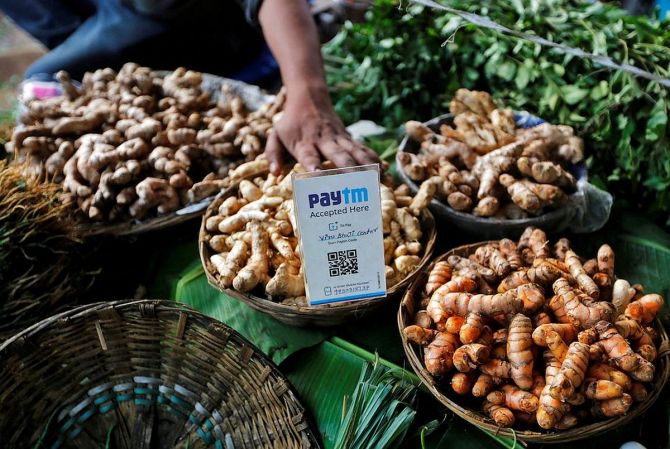The digital payments provider made Rs 3,406 crore in revenue in FY20, compared to PhonePe’s Rs 427 crore and Google Pay’s Rs 3.8 crore.

Paytm will look to raise up to $1.5 billion as part of primary share sale, leading up to its initial public offering (IPO), which is planned for November, a person familiar with the developments said.
The company is looking to file its draft red herring prospectus (DRHP) by July, according to sources.
According to this person, though the details of the listing are being worked out, Paytm may take the qualified institutional buyer (QIB) route to list and issue fresh equity to raise funds.
The company will evaluate a secondary share sale, but none of its large investors has shown an interest in exiting so far, the source said.
Media reports suggested one of its largest investors, SoftBank, was evaluating a partial stake sale worth around $1.5 billion as part of diluting its stake in the proposed IPO.
Paytm has investors such as ANT Financials, which holds around 37 per cent; SoftBank Vision Fund and Elevation Capital (the erstwhile SAIF Partners), which have around 20 per cent each; and founder and chief executive officer Vijay Shekar Sharma, who holds 14.67 per cent.
It recently reported revenue that beat peers such as PhonePe and Google Pay.
The digital payments provider made Rs 3,406 crore in revenue in FY20, compared to PhonePe’s Rs 427 crore and Google Pay’s Rs 3.8 crore.
Paytm is eyeing to raise $3 billion (around Rs 22,000 crore) through this IPO.
The IPO plan received in-principle approval from Paytm’s board on Friday.
If successful, this could be the biggest IPO by an Indian company, breaking Coal India’s 2010 record of Rs 15,475 crore.
Paytm is also targeting a valuation of $25-30 billion, 1.5-1.8 times the current $16 billion.
A recent report by Bernstein Research says that Paytm is not just as financial app provider but a group of synergistic fintech platforms.
The Paytm ecosystem covers payments (wallet/UPI), merchant acquiring, credit saving, asset management, insurance and broking services to complement its e-commerce/e-ticketing platforms.
“Paytm has over 350 million installed base, 50 million active user base, and over 20 million merchant base. Around 100 million of those users are KYC-compliant.”
“Paytm’s non-payment businesses are scaling rapidly. It is aggressively working to monetise across multiple verticals to break even in 12-18 months,” said the report.
Among its other significant investors are AGH Holdings, SAIF Partners, Berkshire Hathaway, T Rowe Price, and Discovery Capital.
Paytm has emerged as one of the largest digital payments players in the country, achieving over 1.4 billion transactions in March.
This growth was driven by offline and financial services, the areas that it has been focusing on.
The firm said it continued to register, on average, 15 per cent month-on-month growth.
In February, Paytm achieved 1.2 billion transactions.
The firm has been focused on increasing its reach in the market and working on top line numbers.
The company recently launched a slew of products and services aimed at helping seasoned as well as new-to-investment users.
It aims to achieve over 10 million users and 75 million yearly transactions in FY22 with the majority of users from small cities and towns.
The company has been rewarding its employees with stock options.
In April, this year it added 242,904 stock options, taking the overall Employee Stock Ownership Plan (ESOP) valuation to $604 million.
The addition takes the existing ESOP pool to 2.4 million equity options.












 © 2025
© 2025